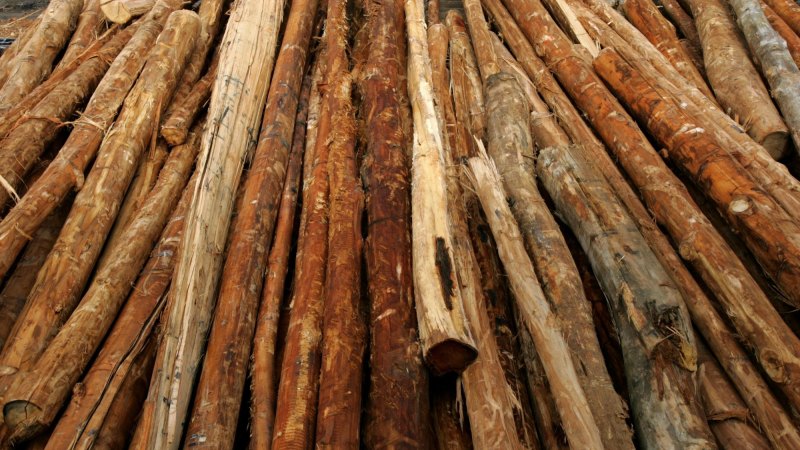Save articles for later
Add articles to your saved list and come back to them any time.
The timber industry has warned that Victoria’s early phaseout of native forest logging could lead to a shortage of hardwood in Australia, but has rejected calls for a scheme to shore up local supply.
The industry’s warning came as the federal government backed the continued export of timber from native forests and plantations, which it said was an important economic opportunity for the sector.
A logging coupe at Rubicon, in Victoria’s Central Highlands.Credit: Karena Goldfinch/supplied
Conservationists have been calling for an end to native forest logging for decades, with habitat loss a driving factor for native wildlife extinctions.
But Australian Forest Products Association chief executive Joel Fitzgibbon said Victoria’s decision this week to bring forward its 2030 deadline to end native forest logging to January 1 next year could cause global environmental harm by increasing the need for imports of hardwood timber.
The former Rudd government forestry minister claimed much of the imports would come from the tropical forests of developing nations with lower environmental standards than in Australia.
“That’s no way to protect and conserve Australia’s native forest estate or to halt global deforestation practices,” Fitzgibbon said.
But he said he would not back a scheme to reserve native timber to ensure local demand was met before it was sent offshore, and instead argued for an expansion of native timber harvesting for both export and local sales.
“We need to keep our sustainable native forestry sector open and thriving, so we can satisfy both our domestic and export needs,” he said.
Hardwood from Australia’s native forests is exported as wood chips and whole logs, and domestically is typically made into flooring, decking, window frames, furniture and, in some cases, beams and joists. In Victoria, hardwood is pulped for paper and wood chip exports. Australia also imports some hardwood, particularly from Canada and New Zealand.
Softwood, which is grown in pine plantations across Australia, is the dominant source of framing material in housing construction.
Former Labor MP Joel Fitzgibbon is now chief executive of the Australian Forest Products Association.Credit: Alex Ellinghausen
Federal Agriculture, Fisheries and Forestry Minister Murray Watt this week endorsed continued exports but acknowledged there was a timber shortage in Australia.
Asked if he would support domestic reservations of hardwood timber from native forests, Watt said the government was investing in the industry.
“The Albanese government supports sustainable forestry and is making record investments in forestry that is environmentally, socially and commercially sustainable,” he said.
Earlier this week, Watt told Sky News exports were crucial for Australia’s logging industry.
“We obviously need to make sure that we look after our national interest, but I think that for any product, you want to make sure that you have a range of options in terms of how you sell it and that’s important for the timber industry to have that export opportunity,” he said.
Watt last week welcomed China lifting its ban on Australian timber import. The trade was suspended in 2021, when it was worth about $560 million a year.
Wilderness Society national campaigns director Amelia Young said governments should manage timber exports to ensure local demand was met, without needing to expand the scale of logging in native forests.
“If industry, business and government are genuinely concerned about supposed resource shortages, they’d be plugging the leak through export restrictions, instead of continuing to insist that more and more can be unsustainably squeezed out of Australia’s precious native forests,” Young said.
“Properly managing exports so that domestic needs can be met would secure a sustainable domestic supply of plantation timber.”
The former Morrison government last year declared koalas an endangered species in NSW, Queensland and the ACT, largely due to habitat loss. NSW is allowing logging within the boundaries of the proposed Great Koala National Park on the Mid North Coast, home to one in five of the state’s surviving koalas.
Cut through the noise of federal politics with news, views and expert analysis from Jacqueline Maley. Subscribers can sign up to our weekly Inside Politics newsletter here.
Most Viewed in Politics
From our partners
Source: Read Full Article



